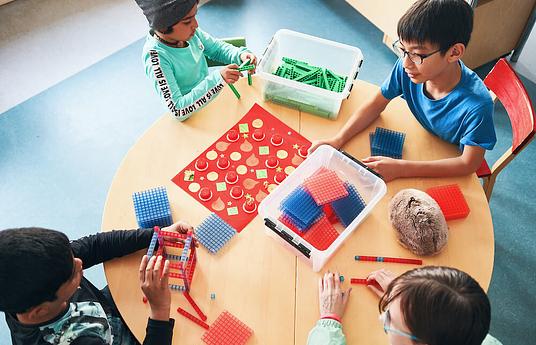The ultimate leader in the education system is the one who is in the room with the students once the bell rings and the door closes, the teacher. They are the ones who, though restricted by curriculums and government objectives, get to decide how the lesson is going to be delivered and how to engage the children in their class.
However, the world has progressed at exponential rates in the last fifty years, making it hard for everyone in the education system to keep up. When class sizes are rising, curriculums have stagnated and the world outside the classroom no longer fits with the world inside it, how can teachers be expected to lead students into an unknown future with confidence and readiness?
‘Globally, teachers' main challenge begins with the gap between class and real world, the world changes faster than classes do,’ agrees Yumi Jeung, International Communication Manager at Future Class Network, a South Korean based initiative that connects the country’s teachers to share their solutions to today’s educational problems. ‘Everyone knows that we have to change education as soon as possible but the problem is how, and we do not have much time to fail.’
The old method of sage on the stage is unfit for purpose in our collaborative, global world. ‘This single direction makes it hard for students to build collaboration and communication skills,’ explains Jeung.
In South Korea, Future Class Network is helping to update education to make these ideals a reality. Their online platform allows a network of teachers to collaborate, share experiences and challenge the traditional norms of education from the grassroots. Usually teachers work in silos, meaning that anyone who comes up with a better way of educating children for today’s world is only benefiting the students they teach, with other teachers having no way of finding out about it and trying it out in their own classroom. Having an online platform where ideas can be shared and collaborated on together with other activated teachers, means that we can speed up the progress made in education and bring a more contemporary education to more students.
‘Class designs, (the know-hows from 20,000 Korean public school teachers' classes), are constantly shared in Future Class Network Platform,’ explains Jeung. ‘When a teacher selects a class design from the platform and applies it to their classroom, the next step is to post the experience and feedback on the platform. This way, a class design is continually experimented and developed, this helps to make it easier for other teachers to apply a successful model in their classroom.’

Through collaboration, sharing of ideas and connecting teachers to each other in a powerful, creative way, Future Class Network helps teachers to feel less alone and to have the support from their peers to try new things and to help others to improve on original ideas. Jeung argues that it is the fear of the unknown that has prevented teachers from innovating their practice independently before their involvement in the network. ‘The biggest challenge to future education is to step up from the fear,’ says Jeung. ‘New challenges can be scary and it is also hard to know which solution is the right and best one. The biggest role of Future Class Network and its platform is to show that together it’s easier.’
One of the projects that’s taken off the most from Future Class Network is the idea of flipped learning. Teachers across South Korea have started to send children preparation materials so that they’re ready to lead the discussion in the next class. This allows teachers to spend more time facilitating the class and helping individual children with their learning.
‘Flipped Learning can be a shortcut to further changes in education,’ explains Jeung. ‘Flipped classrooms empower multi-directional communication where, instead of the teacher giving a lecture, communication among students arises. After this communication is activated, any future education challenges, such as problem solving or entrepreneurship, can be done as well more easily.’

Over twenty thousand teachers now use flipped learning and the Future Class Network platform. ‘The network is growing day by day, and once teachers start to change their class, it is harder to go back to previous ways of teaching,’ explains Jeung, indicating that this is bringing in a new wave of progress within education in South Korea.
This kind of grass-roots leadership examples how we as individuals can make the changes necessary for our education systems today, without waiting for permission from governments and policy makers. Through connection, collaboration and ideas sharing, teachers can bridge the gaps of student motivation and engagement, and align the classroom more readily with children’s lives outside of school. By using the very skills that we say we need children to have to thrive in our uncertain times, we can help our teachers to thrive too, and empower them to lead the future of education.
To know more about Future Class Network,explore their innovation page.




